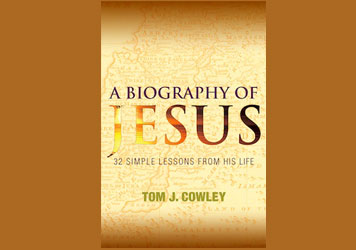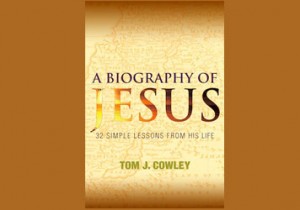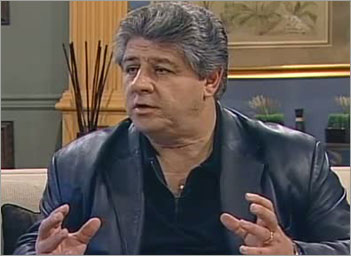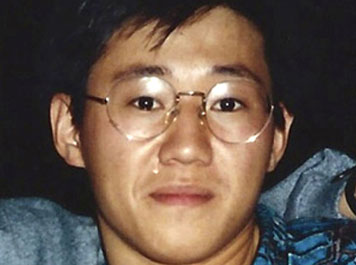The last six months of the earthly life of Jesus Christ are a travelog through the provinces of Judea and Perea. These six months represent a turning point in Jesus’s life. Some authors call it a period of opposition.
After his receptive audiences in Galilee, “Jesus resolutely set out for Jerusalem” (Luke 9:51b). The stakes for following Jesus are raised. Early in this part of his journey, Jesus warns those who were with him walking along the road: “The Son of Man has no place to lay his head” (Luke 9:58b). He empha- sizes a sense of urgency as he says, “Let the dead bury their own dead, but you go and proclaim the kingdom of God” (Luke 9:60b). Again and again in this travelog from Luke (9:51–19:27), Jesus “raises the bar” for his followers.
The base of Jesus’s ministry in Judea and Perea was not centered in a particular village. Perea is an area east of Jerusalem across the Jordan River. Jesus received affirmation from God during his travels that would take him twice to feasts in Jerusalem and once to Bethany to raise Lazarus from the dead. In John chapters 7–11 Jesus declares his divinity at the Feast of Tabernacles, the Feast of Dedication, and in raising Lazareth in Bethany. Then, through a series of “I am” claims before Hebrew leaders, he leaves no doubt as to his mission.
Luke is the primary source for this portion of our study and Luke is ordered more by principles than by events. So the events in this section are not necessarily chronological. The Judea/Perea ministry period becomes a time for Jesus to coach his disciples. Values of the kingdom of God and confrontation of Jewish leaders in Jerusalem are also key themes. This section contains seven events—five teaching events and two impact events.
Deny Self
Followers of Jesus are called to be humble.
TOWARD THE END OF THE MINISTRY in Galilee, Jesus told his disciples to keep minimal provisions. “Take nothing for the journey—no staff, no bag, no bread, no money, no extra tunic” (Luke 9:3b). He was beginning to coach his disciples to deny self for their emerging responsibilities. Arguments arose among the disciples as to who would be the greatest. Jesus taught them: “For he who is least among you all—he is the greatest” (Luke 9:48b). Human nature assumes the opposite, to think of self first. Jesus calls his followers to reverse the order; God first, others second, and self last.
Facing Samaritan opposition, Jesus resolutely continued travels toward Jerusalem through other routes (Luke 9:51– 53). The disciples suggested bringing down fire from heaven to destroy a village, but Jesus, denying their anger, simply went on to another village. There Jesus encountered a man who volunteered to follow Jesus wherever he would go—after burying his father who had just died. Jesus replied, “Let the dead bury their own dead, but you go and proclaim the kingdom of God” (Luke 9:60). Later, Jesus replied, “No one who puts his hand to the plow and looks back is fit for service in the kingdom of God” (Luke 9:62).
As his travels continue with the disciples, Jesus emphasizes entering through the “narrow door” (Luke 13:24). He is increasingly asking a lot of his followers.
refer to: Luke 9, 13, 16:16–31
Questions: Why do you think it was difficult for the early disciples to fully understand Jesus? When is it difficult for you to follow him as he taught?
Decision With Focus
a Teaching event: No one can serve two masters.
JESUS reminds the crowds to listen and follow the signs he is giving to them. The Christian journey demands a life completely focused on God. One needs to be completely committed. You have to be “all in.”
Jesus tells the Pharisees that although they may clean the outside of their cups, inside they are full of greed and wickedness. Be clean inside! Light the world on the outside. Then in Luke 12 he teaches the values of the kingdom of God. We hear of a rich fool who stored his crops in bigger barns in order to have more for himself, only to lose his life anyway. To be rich toward God requires treasures in heaven, which are more valued than treasures on earth. Jesus reminds us where our treasure is and says, there your heart should also be. We must be dressed for service and have our lamps burning. Our decision to follow Jesus demands constant focus.
The parable of the shrewd manager (Luke 16:1–15) reminds us that no one can serve two masters. Money is not of great value in God’s kingdom. The currency of love from the heart, agape love, is what matters most of all. Zacchaeus, the tax collector, came down from a tree, gave half of his possessions to the poor, and followed Jesus (Luke 19). Jesus uses this as an example of the value of decisiveness and focus!
refer to: Luke 11, 12, and 16:1–15 Related readings: Luke 19:1–27
Question: Do you see any aspect of yourself, and how you might respond under similar circumstances, in the story of Zacchaeus?






















